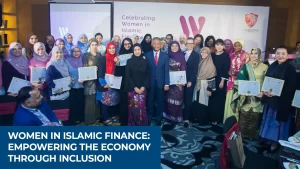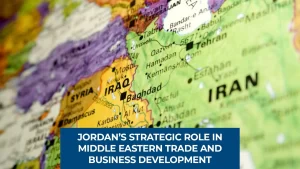SMEs are playing crucial role in employment, innovation and growth of Jordan’s economy, this document is an attempt to explore the extent to which different types of barriers affect the growth of sme’s in Jordan. Paradoxically, these enterprises can be critically valuable for the nation’s growth yet experience severe financial constraints in growth and scaling. As a Jordanian business leader, I understand that Islamic finance holds equity and risk-sharing, which makes it a perfect solution to the difficulties mentioned by Jordanian SMEs.
THE STATE OF SMES IN JORDAN
Over 90 percent of Jordan’s businesses are in the SME sector hence it is the largest employer of labor in the country. But, one of the major drawbacks in the context of these businesses is still access to the cheap and unrestrictive funding. Many SMEs are left out of traditional banking networks as most of them operate on the base of assets or credit histories, with lending being mainly collateral based. This is where Islamic finance can bring about this change in the financing gap.
ISLAMIC FINANCE: A NATURAL ALLY FOR SMES
Islamic finance is based on religious principles called Sharia that bans accrual of interest on loans and encourages sharing of risk and reasonable investment. This system aligns naturally with the needs of SMEs for several reasons:
- RISK SHARING:
Unlike conventional loans methods such as Mudarabah (profit-sharing) and Musharakah (joint venture), borrower and financier share risk as well as profit. This makes financial institutions and SMEs as partners and increase the feeling of vested interest in the business success. - ASSET-BACKED FINANCING:
Unlike conventional banking systems, Islamic finance is bordered by tangible assets in its operation. Some of the instruments include Ijara (leasing) or Murabaha (cost-plus financing) that enable SMEs to acquire machinery, equipment or any other input, essential in start-ups without having to lay down a down payment. - INCLUSIVITY AND ACCESSIBILITY:
Due to its non-exploitative Shariah compliant model, Islamic finance targets segments such as the micro finance and women owned enterprises. Because it promotes the availability of people’s financial service, it leads to secondary effects of enabling various types of economic activities. - STABILITY IN VOLATILE MARKETS:
Speculation (Gharar) is prohibited, which makes Islamic financial products consistency with real economic activities. By adopting HCOs policies, SMEs has an opportunity to stabilize their financial problems hence more enhancement particularly in the current global economic challenges.
ISLAMIC FINANCE ECOSYSTEM IN JORDAN
Indeed, it can be said that Jordan has done a rather good job in building its framework. Some of the banks include Jordan Islamic Bank offering SMEs a variety of Shariah compliant products and services as does Safwa Islamic Bank and the Islamic International Arab Bank. They also provide consultancy services which assists those organizations in the ability to make use of the Islamic financial instruments properly.
Also, for the Islamic finance, the Central Bank of Jordan has provided a favorable legal environment to enhance its expansion. That has not only called for innovation but also helped in enhancing credibility of Islamic financial products.
PROBLEMS AND THE FUTURE PERSPECTIVE
While Islamic finance holds immense promise, there are challenges to address:
- AWARENESS AND EDUCATION:
Most of the SMEs owners have insufficient information regarding the Islamic financial products and the values that comes along. This gap can be filled by financial literacy programs targeted for SMEs. - LIMITED PRODUCT DIVERSIFICATION:
It is crucial to better understand the specific requirements of SMEs across industries and for financial institutions to adapt and expand their portfolios to respond to these needs. - REGULATORY ALIGNMENT:
It is imperative that constant work is put into integrating laws governing Islamic finance to global criteria in order to continue to remain relevant to the region’s markets, hence encouraging investors.
CONCLUSION: A PATH TO SUSTAINABLE GROWTH
Islamic finance is not merely about money; it is an alliance that reinforces the principle of responsible, shared prosperity. It specifically reveals that supporting SMEs encourages innovation, employment and economic development for Jordan. Having rendered over six years me as a Jordanian Business Expert convinced that SMEs and Islamic finance are not simply solutions but the key for Jordanian development.
The synergy amongst the key players of the financial institutions, policies and the key players of the SME sector is the key to unlock this potential.
Furthermore, it was also found out that, Islamic finance bring the opportunities. In the current world economy which is characterized by high risks and uncertainties, halal investments offer long-term, socially responsible investment opportunities. Being connected with Jordan and having rich experience in foreign business, I want to draw investors’ attention to these opportunities and how they can benefit from this growing trend.






